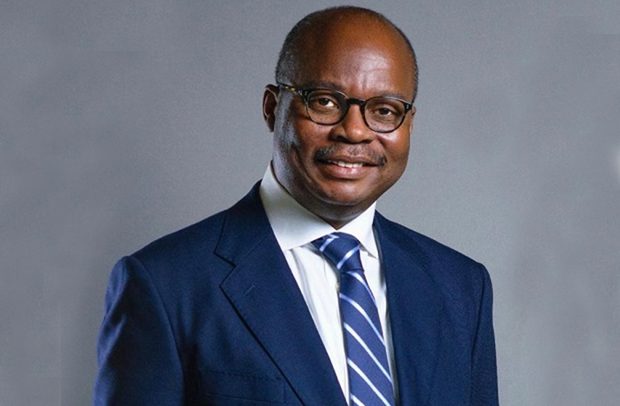
The Monetary Policy Committee (MPC) of the Bank of Ghana (BoG) has maintained the policy rate at 29 percent.
Chair of the Committee Dr Addison announced at a press conference in Accra on Monday that although the inflation rate dropped marginally, the MPC decided to further monitor the trends hence the decision to maintain the policy rate.
“The committee therefore decided to maintain the policy rate at 29 %,” he said.
Dr Ernest Addison further indicated that Banks’ performance has rebounded after the Domestic Debt Exchange Programme (DDEP).
He indicated that the banks that were severely hit by the DDEP are relying on the Bank of Ghana-approved capital restoration policy.
Dr Addison said these at the 117th Monetary Policy Committee (MPC) press conference in Accra on Monday, March 25.
“Banks performance rebounded after the domestic debt exchange program,” he stressed, adding that “Banks impacted by the DDEP relied on approved capital restoration policy in line with BoG requirement.”
He added “The banking sector remains stable despite the elevated credit risks.”
Regarding the DDEP, Dr Ernest Addison, recently, stated that Ghana’s Parliament played a crucial and multifaceted role in the country’s debt restructuring efforts.
He said their involvement included approving the 2023 budget and its debt restructuring and economic reforms components.
The budget approval gave the government the green light to restructure its debt, scrutinizing all aspects of the debt restructuring plans, and ensuring transparency, he said.
This, he said, gave Ghanaian bondholders who initially opposed the debt exchange, confidence to participate in the program.
Parliament also ensured that “the debt restructuring followed due process and complied with constitutional provisions, especially given the international dimensions of these economic decisions, which includes approving international commercial transactions,” Dr Addison added.
“Furthermore, as it is the practice which reflects the democratic process of checks and balances, the opposition parties voiced their concerns about the impact of debt restructuring on the economy and its citizens like retirees and domestic creditors, which served as valuable input into the debates and decisions of the Ghanaian parliament.
“Honourable parliamentarians, esteemed participants, ladies and gentlemen, As we embark on this journey of intense interaction over the next few days, let us engage actively, share our diverse insights, and forge a path towards robust and effective public debt management strategies tailored to our unique domestic economic contexts. Our policy recommendations and future directions should reflect a holistic approach, encompassing transparency, continuous capacity-building, regional collaboration, and adaptation to emerging challenges.
“I humbly urge you to make the most of this opportunity. Remember that our discussions here are not just for the present but will echo into the future, impacting generations in our respective countries.”
Dr Addison said these during a joint capacity-building initiative between the World Bank Group, Westminster Foundation for Democracy (WFD), and West African Institute for Financial and Economic Management (WAIFEM) on parliaments and public debt management roundtable: transparency & accountability in public debt management, at the Eastern Premier Hotel in Koforidua on Monday Febraury 5.
He further stated that as part of the practice that reflects the democratic process of checks and balances in Ghana, the opposition parties voiced their concerns about the impact of debt restructuring on the economy.
It is recalled some pensioners picketed at the Ministry of Finance to protest their inclusion in the programme.
Dr Addison said that the concerns of citizens like retirees and domestic creditors served as valuable input into the debates and decisions of the Ghanaian parliament.
Dr Addison told the gathering that Ghana successfully restructured $5.4 billion in loans with official creditors, an essential step in its debt relief and economic stabilisation efforts.
Also, as part of the debt restructuring programme, the country has executed a public offer to Ghanaian bondholders to trade their highyielding bonds for lower-yielding versions of much longer maturity periods, the added.
These actions were decisively implemented to alleviate the effects of the debt distress that has affected Ghana, he said.
“Now, Ghana focuses on deepening economic reforms to ensure long-term macro-fiscal stability and debt sustainability. The outcomes in terms of quantitative performance and indicative targets have been encouraging so far,” Dr Addison stated.
The post Monetary Policy Committee keeps policy rate at 29% first appeared on 3News.
Read Full Story























Facebook
Twitter
Pinterest
Instagram
Google+
YouTube
LinkedIn
RSS